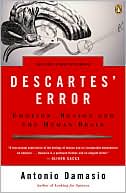Category Books
- Fiction Books & Literature
- Graphic Novels
- Horror
- Mystery & Crime
- Poetry
- Romance Books
- Science Fiction & Fantasy
- Thrillers
- Westerns
- Ages 0-2
- Ages 3-5
- Ages 6-8
- Ages 9-12
- Teens
- Children's Books
- African Americans
- Antiques & Collectibles
- Art, Architecture & Photography
- Bibles & Bible Studies
- Biography
- Business Books
- Christianity
- Computer Books & Technology Books
- Cookbooks, Food & Wine
- Crafts & Hobbies Books
- Education & Teaching
- Engineering
- Entertainment
- Foreign Languages
- Game Books
- Gay & Lesbian
- Health Books, Diet & Fitness Books
- History
- Home & Garden
- Humor Books
- Judaism & Judaica
- Law
- Medical Books
- New Age & Spirituality
- Nonfiction
- Parenting & Family
- Pets
- Philosophy
- Political Books & Current Events Books
- Psychology & Psychotherapy
- Reference
- Religion Books
- Science & Nature
- Self Improvement
- Sex & Relationships
- Social Sciences
- Sports & Adventure
- Study Guides & Test Prep
- Travel
- True Crime
- Weddings
- Women's Studies
Descartes' Error: Emotion, Reason, and the Human Brain » (Reprint)

Authors: Antonio Damasio
ISBN-13: 9780143036227, ISBN-10: 014303622X
Format: Paperback
Publisher: Penguin Group (USA)
Date Published: September 2005
Edition: Reprint
Author Biography: Antonio Damasio
Book Synopsis
Since Descartes famously proclaimed, I think, therefore I am, science has often overlooked emotions as the source of a person's true being. Even modern neuroscience has tended, until recently, to concentrate on the cognitive aspects of brain function, disregarding emotions. This attitude began to change with the publication of Descartes' Error in 1995. Antonio Damasio— one of the world's leading neurologists (The New York Times)—challenged traditional ideas about the connection between emotions and rationality. In this wondrously engaging book, Damasio takes the reader on a journey of scientific discovery through a series of case studies, demonstrating what many of us have long suspected: emotions are not a luxury, they are essential to rational thinking and to normal social behavior.
Author Biography: Antonio Damasio is the Van Allen Distinguished Professor and head of the department of neurology at the University of Iowa's Medical Center and an adjunct professor at the Salk Institute in La Jolla, California. The recipient of numerous awards, he is a member of the Institute of Medicine of the National Academy of Sciences and a fellow of the American Academy of Arts and Sciences. He is also the author of two other widely acclaimed books, The Felling of What Happens and Looking for Spinoza.
Publishers Weekly
In an important, gracefully written exploration of the neurochemical basis of mind, neurologist Damasio rejects the Cartesian notion of the human mind as a thinking organ more or less separate from bodily processes. Emotions and feelings, he argues, are essential to reasoning and decision-making. The human brain, he further contends, has a specialized region in the frontal lobes for making personal and social decisions, and this region works in concert with deeper brain centers that store emotional memories. To support this controversial claim, Damasio draws on his work with brain-injured patients at the University of Iowa College of Medicine, and also cites the case of Phineas Gage, a Vermont railway foreman who lost his ethical faculties after an explosion in 1848 drove a metal rod through his skull. Damasio's exciting investigation challenges the fashionable metaphor of the mind as a software program. Interested readers are also referred to Richard Restak's The Modular Brain (Nonfiction Forecasts, June 13). Illustrations. 50,000 first printing; QPB alternate; Library of Science selection. (Sept.)
Table of Contents
PART I Unpleasantness in Vermont 3
Gage's Brain Revealed 20
A Modern Phineas Gage 34
In Colder Blood 52
PART II Assembling an Explanation 83
Biological Regulation and Survival 114
Emotions and Feelings 127
The Somatic-Marker Hypothesis 165
PART III Testing the Somatic-Marker Hypothesis 205
The Body-Minded Brain 223
A Passion for Reasoning 245
Postscriptum 253
Notes and References 269
Further Reading 293
Acknowledgments 299
Index 301
Subjects
 Medicine
Medicine  Basic Sciences
Basic SciencesNonfiction
 Philosophy
Philosophy  European & American Philosophy
European & American PhilosophyNonfiction
 Philosophy
Philosophy  General & Miscellaneous Philosophy
General & Miscellaneous PhilosophyNonfiction
 Psychology
Psychology  Psychology - Theory, History & Research
Psychology - Theory, History & ResearchPhilosophy
 European & American Philosophy
European & American Philosophy  French Philosophy
French PhilosophyPhilosophy
 General & Miscellaneous Philosophy
General & Miscellaneous Philosophy  General & Miscellaneous
General & MiscellaneousPsychology & Psychotherapy
 Psychology - Theory, History & Research
Psychology - Theory, History & Research  Neuropsychology & Neuropsychiatry
Neuropsychology & NeuropsychiatryScience & Nature
 All Science & Nature
All Science & Nature  Biology & Life Sciences
Biology & Life SciencesMedical Books
 Psychology & Psychotherapy
Psychology & Psychotherapy  Psychology - Theory, History & Research
Psychology - Theory, History & ResearchNonfiction
 Medicine
Medicine  Medicine
MedicineNonfiction
 Science & Nature
Science & Nature  Biology
BiologyNonfiction
 Science & Nature
Science & Nature  All Science & Nature
All Science & Nature
